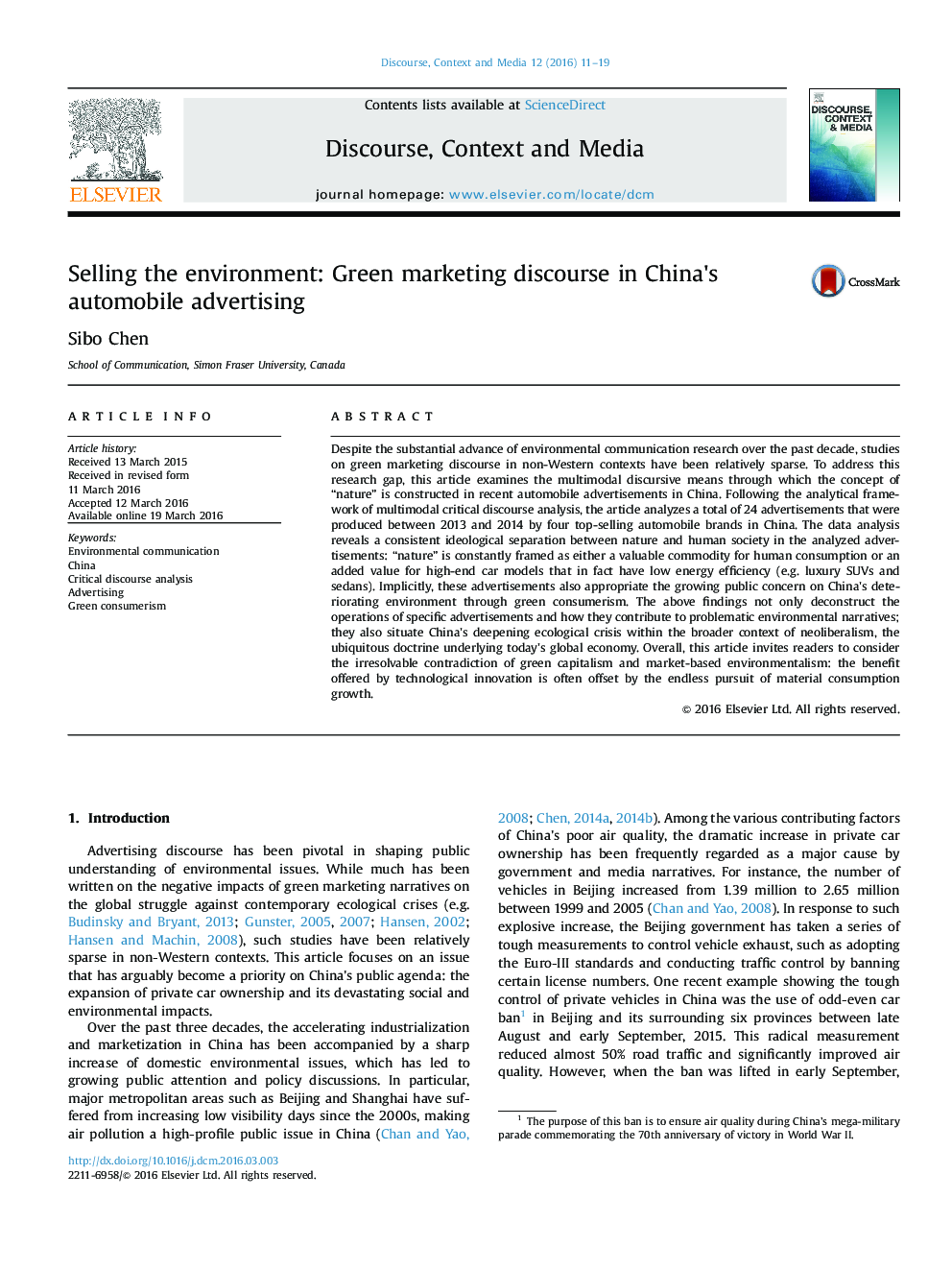| Article ID | Journal | Published Year | Pages | File Type |
|---|---|---|---|---|
| 1100492 | Discourse, Context & Media | 2016 | 9 Pages |
•This paper examines the multimodal discourse of automobile advertisements in China.•Advertisements produced by four top-selling automobile brands in China were analyzed.•The analysis indicates a consistent ideological separation between human society and nature.•“Nature” is defined as either a commodity for consumption or an added value for high-end cars.Green consumerism adopted by corporations presents a serious concern.
Despite the substantial advance of environmental communication research over the past decade, studies on green marketing discourse in non-Western contexts have been relatively sparse. To address this research gap, this article examines the multimodal discursive means through which the concept of “nature” is constructed in recent automobile advertisements in China. Following the analytical framework of multimodal critical discourse analysis, the article analyzes a total of 24 advertisements that were produced between 2013 and 2014 by four top-selling automobile brands in China. The data analysis reveals a consistent ideological separation between nature and human society in the analyzed advertisements: “nature” is constantly framed as either a valuable commodity for human consumption or an added value for high-end car models that in fact have low energy efficiency (e.g. luxury SUVs and sedans). Implicitly, these advertisements also appropriate the growing public concern on China׳s deteriorating environment through green consumerism. The above findings not only deconstruct the operations of specific advertisements and how they contribute to problematic environmental narratives; they also situate China׳s deepening ecological crisis within the broader context of neoliberalism, the ubiquitous doctrine underlying today׳s global economy. Overall, this article invites readers to consider the irresolvable contradiction of green capitalism and market-based environmentalism: the benefit offered by technological innovation is often offset by the endless pursuit of material consumption growth.
